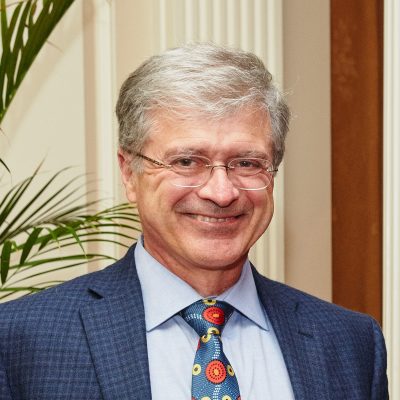
Boston University President Robert Brown announced Monday via email that Anthony Janetos, the director of the Frederick S. Pardee Center for the Study of Longer-Range Future, will chair the university’s Climate Action Plan Task Force, a team of professors, administrators and students.
On Sept. 20, the BU Board of Trustees endorsed the Advisory Committee on Socially Responsible Investing’s recommendation to go ahead with CAP, The Daily Free Press reported.
Brown outlined five major tasks for Janetos’ team, including making recommendations for the university’s educational program on climate change and engage the BU community in preparation of the CAP.
Janetos said he has been out of country since the announcement was made, and has not yet reached out to the other members on the task force for an initial meeting. He said the first meeting will coincide with Brown’s availability so that the task force can hear from him directly.
“We’re supposed to report directly to President Brown, and that’s important because that signals that this is a serious effort,” Janetos said. “We’re reporting to the top of the university, and I think that [President Brown] is clearly engaged in this.”
Although most elements of BU’s sustainability plans are focused on energy use, more can be done with the CAP, he added.
“There are opportunities for us to be more ambitious, and the inclusion of resilience and adaptation in the overall agenda is a really important step because it acknowledges that we’re not completely in control of our own destiny,” he said. “[We] will face physical changes in the climate system that have some implication for the health and well-being of faculty, staff and students. So what are we going to do about that?”
Janetos said the plan is going to be an open process that creates research and outreach opportunities.
“[CAP] recognizes that the university’s response to such an important issue goes further than the question of divestment,” he said. “It really extends to all of the facets of being a major national and international research university.”
Sustainability Director Dennis Carlberg said BU has reduced its greenhouse gas emissions by 28 percent, which exceeds the initial goal of a 25 percent reduction by 2020.
Carlberg, who is also on the Task Force, said he thinks Janetos was the right person to be chosen as chair of the CAP Task Force because of his experience addressing broad global and societal issues at the Pardee Center.
“This is what he does, what he’s been doing,” he said. “He understands this very well, and in the broader way that this needs to be thought of.”
BU spokesperson Colin Riley wrote in an email that CAP will start new discussions among BU students.
“The greatest impact on students will be increased awareness of the science involved in climate changes, the complexities of the issue, and positive efforts — no matter how big or small — for the better,” he wrote.
Several students said they had mixed feelings on whether the Task Force will succeed — Bridget De La Torre, a freshman in the College of General Studies, said she isn’t satisfied with how Brown is addressing student protests for divestment.
“We’re going to keep moving forward because the Climate Action Plan is not enough,” she said. “It’s not full divestment. We’ve done the research, and are working to get full divestment with college campuses from all around Boston.”
Samantha Cote, a junior in the College of Communication, said she is disappointed that CAP is not directly addressing the question of fossil fuel divestment.
“I don’t think [the university] want to take action to divest in fossil fuels. I think that would take away a lot of BU’s money and profit so it makes sense why they wouldn’t,” she said. “But I do think [CAP is] important, and I do appreciate that climate change is a serious problem that BU thinks about.”
Ryan Peters, a senior in the College of Engineering, said that the plan can be a part of BU’s strategic visions for decades to come.
“This is our chance to get it right, set a course to act on climate issues, and integrate it within the research and learning experience of BU students,” Peters said.




